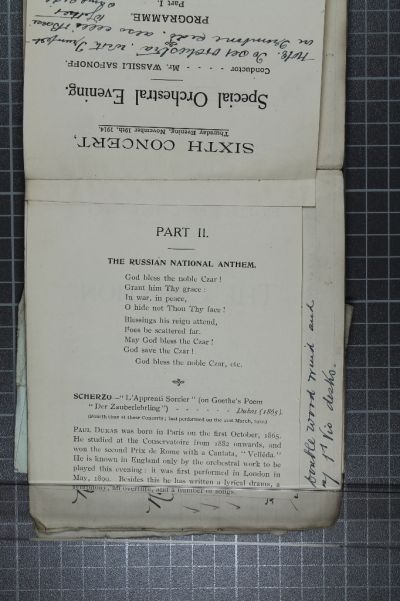Royal Manchester College Of Music (RMCM)
Document, 1927

During WW1, Mr Frank Merrick was arrested and imprisoned as a conscientious objector. Mr Carl Fuchs was interned in Germany from November 1914 until after the Armistice when he was allowed to return to England in March 1919. The Principle, Adolph Brodsky, was also interned but in Austria.
